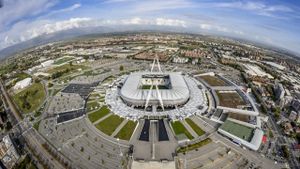U.S. President Donald Trump has stirred controversy with his recent threats to cut off funding to South Africa due to claims of land confiscation. His comments, which appeared on his Truth Social platform on February 2, 2025, referenced the newly signed Expropriation Act by President Cyril Ramaphosa as evidence of severe human rights violations occurring within the country. "South Africa is confiscatinng land and treating certain classes of people VERY BADLY. It is a bad situation... A massive Human Rights VIOLATION, at a minimum, is happening for all to see," Trump wrote, vowing to take significant action until the situation is fully investigated.
The Expropriation Act, signed on January 23, is intended to allow state organs to expropriate land for various public interests, closely aligned with South Africa's constitutional commitments. While the government views it as a necessary step toward correcting historical injustices, Trump's incendiary remarks have heightened tensions. According to GroundUp, Afriforum, a civil rights organization primarily representing white Afrikaans people, has responded by appealing to the Trump administration to refrain from punishing ordinary South Africans and instead focus on senior ANC leaders.
Kallie Kriel, the CEO of Afriforum, stated, "Afriforum will officially request the USA to directly punish senior ANC leaders and not the people of South Africa... We, as ordinary citizens, are already being punished by a hostile and foolish government and do not want to be punished as well." This plea highlights Afriforum's opposition to the Expropriation Act, which they feel jeopardizes property rights and investor confidence within the nation.
While Trump has promised to review all U.S. aid to South Africa—an estimated $440 million earmarked for health programs like HIV and TB treatment—South African officials have expressed wariness over the potential ramifications. Minister of International Relations Ronald Lamola welcomed Trump’s announcement to investigate the Expropriation Act, asserting, “We trust... such insights will deepen their [U.S. advisors] understandings of our policies as a constitutional democracy.” He emphasized on February 3, 2025, the need for respectful and informed dialogue about South African policies.
President Ramaphosa defended the Expropriation Act against Trump's claims, indicating the law is not about confiscation but aligns with public interest goals as mandated by the Constitution. His spokesperson, Vincent Magwenya, stated, "This [Expropriation Act] is not a confiscation instrument, but...an equitable and just legal process."
Opponents of the Expropriation Act, like the Democratic Alliance and Economic Freedom Fighters (EFF), have taken varying stances; some oppose the law outright, fearing it will lead to land grabs and loss of property rights, whereas EFF criticized the Act as ineffective and merely masking the ANC's failures.
Afriforum’s outreach to the U.S. signals significant concerns about international perceptions of South Africa’s land policies. The organization is actively campaigning for legal adjustments to the Expropriation Act to fortify property rights and quell fears over investor withdrawal—a situation described as detrimental for ordinary South Africans who already face financial hardships.
Responses from local actors have emphasized the importance of domestic resolution avenues. GOOD Party secretary-general Brett Herron criticized foreign intervention as potentially undermining South Africa's sovereignty, even arguing against the ethics of lobbying foreign powers to sanction native governance. He characterized such pleas as inappropriate, likening them to acts of economic treason against the country.
ActionSA has voiced similar sentiments, attributing myriad socio-economic challenges to the ANC's governance over the past three decades and asserting the necessity of local political reforms as opposed to external punitive actions initiated by foreign leaders.
The scenario presents a complex grid of alliances, where Afriforum seeks international support to influence domestic policy, all the whilst balancing the risk of economic punishment directed at the general populace. The international community watches closely as South Africa navigates this web of internal disputes and external pressures.
Understanding the delicate balance between local advocacy and foreign involvement is pivotal. It will not only determine the future of land ownership and governance within South Africa but may also redefine its relations with U.S. leadership under President Trump. Such high-stake dialogues are emblematic of broader global patterns, where domestic policy spirals can attract foreign scrutiny—often with unforeseeable consequences for the citizens at ground zero.



